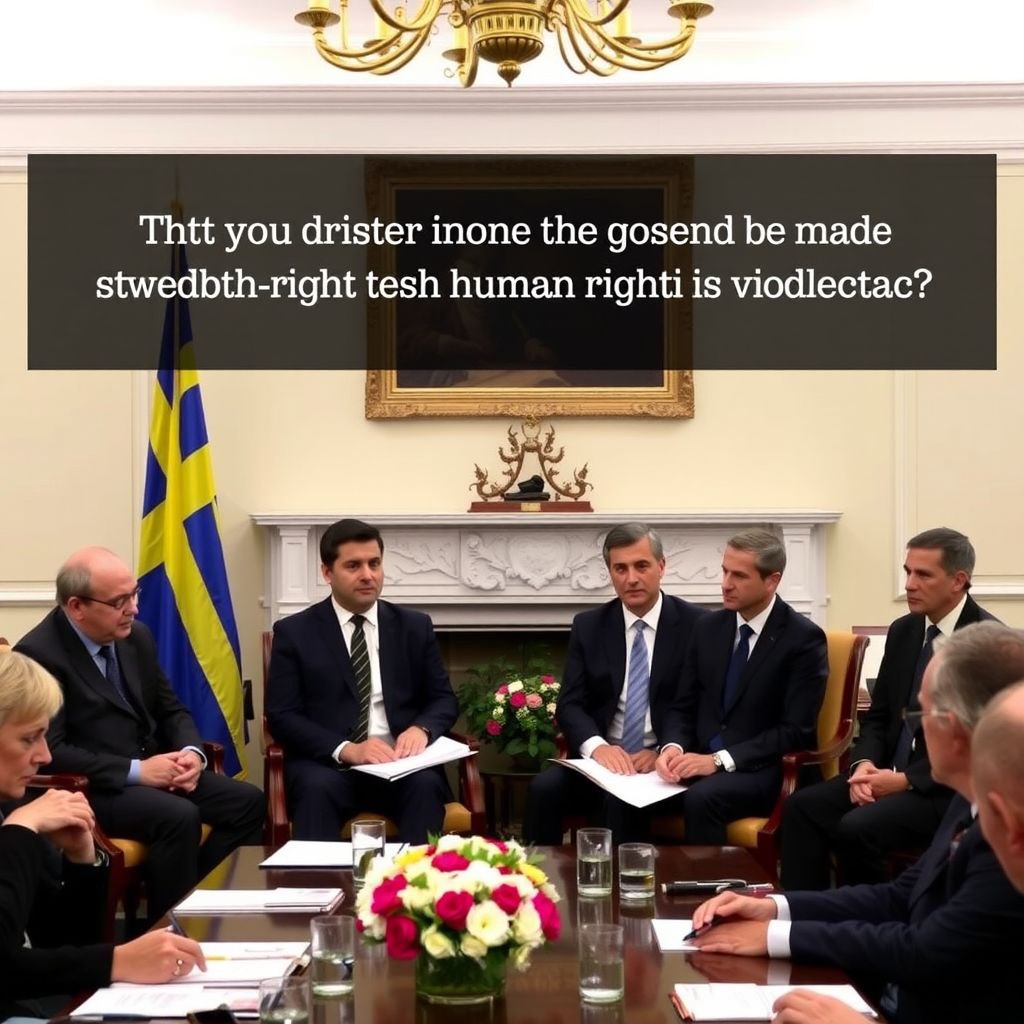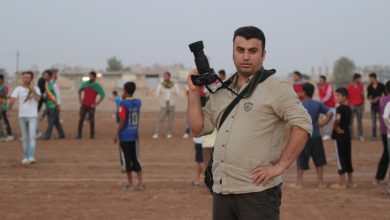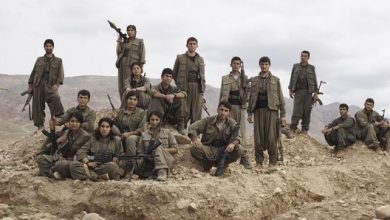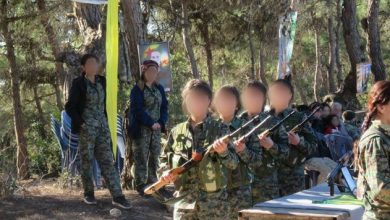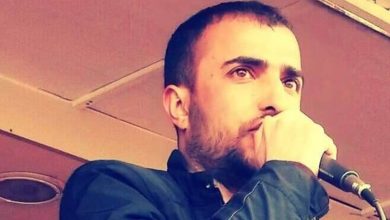Accountability for Human Rights Violations by Kurdish Paramilitary Groups is Essential
Iranian Kurdistan Human Rights Watch, a legal and non-profit organization that has meticulously monitored and documented human rights violations in Kurdish regions of Iran for several years, has recently addressed a letter to the Swedish government. In this letter, they detailed instances of human rights abuses committed by Kurdish paramilitary groups operating in the Iraqi Kurdistan Region, emphasizing the necessity for the Swedish government to take responsibility for the systematic violence perpetrated by these groups. The letter is as follows:
“Iranian Kurdistan Human Rights Watch, relying on the established principles of international humanitarian law and global human rights standards, expresses its profound concern regarding the flagrant and widespread violations of human rights by Kurdish paramilitary groups active in the western border regions of Iran. These groups include PJAK, PAK, Komala, and the Kurdistan Democratic Party of Iran, which have consistently and systematically engaged in practices such as the use of child soldiers, systematic violence against women and girls, threats and coercion against families, and the deprivation of fundamental freedoms of Iranian Kurdish citizens. These actions are in direct contravention of recognized international norms and the binding obligations of states and non-state actors under international law, including:
- The Convention on the Rights of the Child (CRC) of 1989, which, in Article 38, obligates states to take all feasible measures to ensure that children are protected from participation in hostilities.
- The Optional Protocol to the Convention on the Rights of the Child on the involvement of children in armed conflict (OPAC) of 2000, which explicitly prohibits the recruitment and use of individuals under the age of 18 in non-state armed groups, deeming it a form of child abuse.
- The Convention on the Elimination of All Forms of Discrimination against Women (CEDAW), which emphasizes the prohibition of violence, exploitation, and gender-based discrimination, and obligates states to protect the rights of women and girls in all circumstances, including armed conflicts.
- Fundamental human rights documents such as the Universal Declaration of Human Rights (1948), the International Covenant on Civil and Political Rights (ICCPR), and the four Geneva Conventions, all of which stress the special protection of civilians, women, and children against violence and harm.
In essence, it can be stated that all principles of international humanitarian law, international norms and conventions, and legal practices governing the conduct of states are being violated by these paramilitary groups. Given that some senior members of these groups reside in European countries, particularly Sweden, Iranian Kurdistan Human Rights Watch urges the esteemed Swedish government to:
- Uphold its human rights principles and obligations with respect to these groups.
- Take legal, political, and diplomatic measures to prevent the continuation of these individuals’ activities.
- Facilitate communication and meetings between victims and relevant institutions in Sweden to enable the direct presentation of testimonies and evidence.
Part of this documentation, including photographic reports, field accounts, legal documents, and identification records of child soldier victims and affected women, is publicly available on the official website of Iranian Kurdistan Human Rights Watch. We believe that the governments of Iran, the Iraqi Kurdistan Region, and the central government of Iraq are also obligated, within the framework of their domestic laws and international commitments, to ensure the security and human dignity of their citizens. Unfortunately, in recent years, the lack of sufficient resolve by these governments has allowed armed groups to gain greater control over parts of the border regions, increasing the potential for human rights violations, particularly against vulnerable groups. Women and children are the primary victims of these groups.
In our view, only through a determined, transnational, and politically neutral approach can we combat heinous phenomena such as child soldiery, violence against women, and the suppression of fundamental freedoms. European governments and international institutions have a duty, within their international responsibilities, to prevent the creation of environments that perpetuate these violations. Regrettably, the leaders of these groups move freely, conduct activities, and even earn income in Europe, including within the territory of Sweden. Additionally, some of these groups’ television networks have established their headquarters in Europe and Sweden, which is a matter of concern. These television networks also support the paramilitary and armed actions of these groups, providing media coverage for human rights violations. Interviews with the leaders of these groups are also conducted by these networks. The most significant television network affiliated with these armed groups is Aryan TV, which operates in Sweden and is owned by PJAK, and which repeatedly and daily normalizes the actions of Kurdish paramilitary groups and supports them.
These groups are active in the border regions of western Iran and within Iraqi Kurdistan. Their actions include the use of child soldiers, extortion, generating income from human trafficking, and the distribution of narcotics, instances of which have been repeatedly published on the Iranian Kurdistan Human Rights Watch website. Hundreds of young Iranian Kurds have been killed within the structure of these groups due to their armed actions, and their bodies have never been returned to their families. Importantly, these actions are never covered by these groups’ television networks.
We are prepared to share our information and documentation with you in a transparent process based on human rights and international norms. The practical proposals of Iranian Kurdistan Human Rights Watch for cooperation are as follows:
- Establishing a joint committee of human rights organizations in Europe and Iran to investigate human rights violations by Kurdish armed groups.
- Facilitating the presence of victims and the presentation of testimonies in European institutions, including the European Parliament and independent NGOs in Sweden.
- Exerting diplomatic and political pressure on the leaders of these groups to ensure accountability and end human rights violations.
- Organizing specialized meetings in Europe with the participation of civil society organizations, Kurdish intellectuals, and victims to develop a ‘Charter for the Protection of Victims of Violence in Kurdish Regions.’
Iranian Kurdistan Human Rights Watch is fully prepared to implement these proposals and establish a sustained and documented collaboration with European human rights organizations and the Kingdom of Sweden.”
Iranian Kurdistan Human Rights Watch
April 2025

